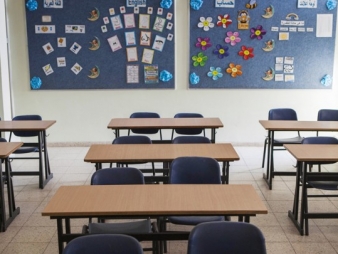Ohio recently passed HB 197 to address the situation caused by the Coronavirus. Below is a brief overview of ways the bill tried to provide help in a variety of areas of our lives that have been affected.
Schools
With the recent shut down of schools across Ohio, the bill allows schools some flexibility.
- It allows schools to use, create, or revise a plan to provide web-based learning to students to make up any number of hours schools missed under the State’s school closure order.
- It allows students who were on track to graduate in 2019-2020 but who have not completed the requirements due to the school closure to graduate.
- It temporarily exempts schools from state food-processing requirements to allow them to continue serving meals to students.
- It allows licensed special education providers to utilize telehealth and electronic communication methods to serve students who are receiving special education services through their school district.
- It exempts all public and chartered nonpublic schools from administering state achievement and alternative assessments.
Government
The bill permits governments some flexibility in how they administer government functions and enforce certain regulations.
- It allows for the use of electronic communication to conduct public meetings, in lieu of in-person meetings, during the public health emergency so long as the public is aware and can participate electronically.
- It extends the validity of licenses issued by state agencies and political subdivisions and provides a 90-day window for renewal, yet it still allows for disciplinary actions during this time for reasons other than renewals.
- It specifies that all county offices required to transfer property and process titles that aren’t made available online must remain open.
- It prohibits public water disconnections during the pandemic.
Legal
Recognizing that the current situation may make it difficult to respond to deadlines in legal matters the law provides for a tolling provision. Tolling is a legal doctrine which effectively pauses the clock on any legal time period.
- Specifically, it requires criminal, civil and the administrative statutes of limitations and other court time limitations and deadlines that are set to expire between March 9, 2020, and July 30, 2020, be tolled. These provisions end on the date the period of emergency ends or July 30, 2020, whichever is sooner.
Election
As in-person voting was canceled on Election Day, the law provides extra time to vote by mail.
- It extends the date by which a person can vote by mail until April 28, 2020, and extends the date for those required to file a post-primary campaign finance report to June 5, 2020, at 4 p.m.
Child Care
The law relaxes some of the child care regulations and continues financial assistance to government programs to ensure that government-sponsored child care centers will be able to quickly resume services once the emergency orders are lifted.
- It suspends the statutory staff-to-child ratio requirements and maximum group sizes at child-care centers during the pendency of the declared emergency, but not beyond December 1, 2020.
- It allows Job and Family Services to continue making payments to publicly funded child care providers during the emergency.
Healthcare
The law makes some changes to healthcare regulations to allow more help on the frontlines of the crisis.
- It permanently grants certified registered nurse anesthetists the authority to perform additional duties or services related to anesthesia care, including ordering and administering drugs and IV fluids, ordering diagnostic tests and directing nurses to administer drugs.
- It allows for recent nursing graduates to obtain a temporary license to practice prior to passing the licensure examination, which temporary licenses expire either 90 days after the duration of the emergency or 90 days after December 1, 2020, whichever comes sooner.
Unemployment
The law codifies the Governor’s earlier order regarding unemployment compensation.
- It suspends the one-week waiting period, allows the Director of Job and Family Services to waive the work search requirements, and changes eligibility requirements to include COVID-19 unemployment situations.
Taxes
The law changes tax regulations to make them more in line with the Feds moving the tax filing deadline from April 15th to July 15th.
- It allows the Tax Commissioner to extend the date for tax filing and payment dates for the duration of the emergency and to waive interest payments.
- It extends the date for estimated payments as well.
- It clarifies that, for municipal income tax purposes, an employee working from home or from a temporary worksite during the emergency is to be considered as working from their otherwise principal place of work for purposes of the “20-day rule.”
- It extends the due date of the state-administered municipal net profit tax.
If you have questions about how HB 197 affects you or your business please contact one of our attorneys.
Tagged In:CoronavirusCOVID-19EducationElectionsHealthcareTaxationUnemployment




